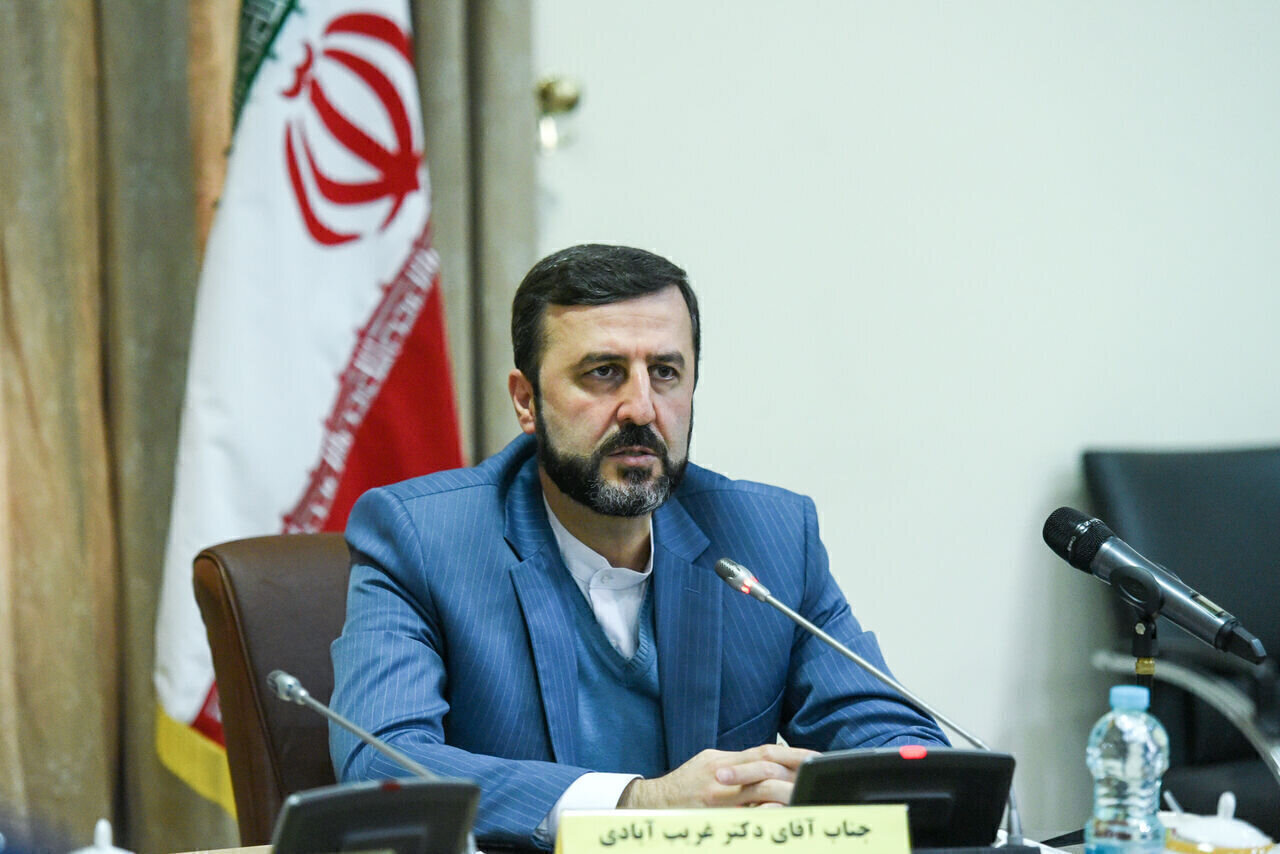The International Court of Justice’s verdict on the Gaza war and the idiocy of a rules-based order – Firstpost
)
A Palestinian flag flies outside the United Nations’ highest court during historic hearings in The Hague, Netherlands, on the legality of Israel’s 57-year rule over the West Bank and East Jerusalem, Feb. 21, 2024. AP file
Wars in Eurasia and the Middle East continue to rage, proving the imbecility of the international rules-based order. Rebellion is the order of the day, and unilateralism is the preferred method of asserting hegemony and achieving regime change.
This is true not only for superpowers, but also for middle and regional powers on every continent. All superpowers sit in their glass houses and are morally incapable of blaming or condemning each other. Duplicity and double standards have become the new gold standard of international discourse. Resolutions and decisions of the UN Security Council, the UN General Assembly and the International Court of Justice (ICJ) have lost their relevance, enforceability and validity since defiance has evolved into a new virtue of excellence and power projection.
Last week, the ICJ issued an advisory opinion on the West Bank, Israeli settlements and the status of East Jerusalem in the context of the Israel-Palestine conflict. The ICJ ruled that “the transfer of settlers to the West Bank and Jerusalem and the maintenance of their presence by Israel violate Article 49 of the Fourth Geneva Convention.” ICJ Chief Judge Nawaf Salam considered that “the Court has found… that Israel’s continued presence in the Palestinian territories is illegal. Israel secured Palestinian territories, the West Bank and Gaza Strip, in the 1967 war, which it won convincingly. But these territories remain essential to the pursuit of an independent Palestinian state. “In addition, the increasing and expanding settlements in the West Bank and the arming of settlers have created a new complication in the escalation of the ongoing war between Israel and Hamas, which has seen unprecedented violence and loss of life and the displacement of innocent citizens on both sides over the past nine months.”
The ICJ had previously ordered Israel not to attack Rafah, but this was hardly heeded. This time, the ruling is merely advisory in nature and will not bring about any change in the situation on the ground, even though it has moral and legal force. One has witnessed the ongoing genocide trials and war crimes prosecutions against Israeli and Hamas leaders by the ICJ and the International Criminal Court hanging in the air. Some of their supporters on both sides have justified their actions and even threatened the officials of these multilateral institutions and agencies, thereby further undermining the legitimacy of these institutions. It is to be hoped that the proponents of a rules-based order will not ignore the importance of such rulings and decisions, as mere lip service will tarnish their own high and hollow moral stance on these issues.
The Arab League, the Gulf Cooperation Council (GCC) and several other countries welcomed the ruling. The United Arab Emirates, which was the first country to normalize relations with Israel under the Abraham Accords, rejected any measures by Israel to change the historical and legal status of occupied Palestine and called for the early resumption of the peace process.
In an unusually strong comment, the Emirati Foreign Ministry condemned practices that violate international resolutions and warned that such actions “threaten further escalation and instability in the region, hinder efforts to achieve peace and stability, and therefore must put an end to Israel’s ‘illegal practices’ that undermine an independent Palestinian state.”
Speaking of the “day after” scenario, the United Arab Emirates, along with countries like Egypt, have been willing to provide stability and peacekeepers in Gaza to maintain the ceasefire and contribute to a two-state solution. Israel is not interested in allowing Hamas or Fatah to rule Gaza if they agree to withdraw.
In addition, Saudi Arabia has once again taken up the Palestinian cause and has been accused of condemning the excesses of the Israel Defense Forces (IDF) against innocent residents of the Gaza Strip and the resulting creation of inhumane conditions.
As for the day-after scenario and the question of Hamas’ defeat, there are definitely major differences of opinion between Israeli army leaders and Prime Minister Benjamin Netanyahu and his far-right political associates. Ministers like Smotrich have once again chosen to violate the sanctity of the Al-Aqsa Mosque, adding fuel to the fire. He and others like him are against any ceasefire or independent space for the Palestinians, which in some ways limits the belligerent Netanyahu’s ability to agree to even a prolonged ceasefire. Many would even like to invoke the Hannibal Doctrine, which could lead to abandoning the remaining hostages if they get in the way of the State of Israel. Hamas wants to get the maximum out of a permanent ceasefire, as opposed to Netanyahu’s unattainable determination to destroy Hamas once and for all. The limits on both sides are quite obvious. The US political establishment, which has worked hard to achieve a ceasefire with Qatar and Egypt, is plagued by its domestic political failures.
Still, Secretary of State Blinken (June 12) said at a press conference in Doha that he hoped the U.S. and its partners would soon release their plans for the post-war administration of Gaza, as he seeks to enlist Arab countries to provide a security force for Gaza in the meantime. The U.S. is unlikely to provide troops, but is prepared to provide training, equipment, and other assistance for the final integration of Gaza and Ramallah and the two-state solution, even if the Arabs do not fully agree with his stated and partly immature goals for moving forward.
Thousands have been killed, several thousand injured and millions displaced as the war spreads to other theatres and countries. In addition to Hamas, Israel faces Hezbollah in Lebanon and Syria and the Houthis in Yemen, who control traffic in the Red Sea. These developments are serious and can spiral out of control without warning, posing another major challenge to the fractious international community.
Efforts to achieve a ceasefire are in limbo due to a lack of resolve, justice and enforceability. The suffering on both sides is great. Gaza is being razed by the rising death toll of innocent civilians, including women and children, which will encourage further radicalization.
Israel’s political spectrum is fragmented. The Israeli armed forces are overstretched, and opening two or three front wars will further undermine the security and stability of the countries involved, as well as the region. The recruitment of involuntary conservative Jews, as well as the extension of conscription, have exacerbated the Netanyahu government’s ongoing domestic problems. The exodus of labor and the war itself have negatively impacted the Israeli economy. The port of Eilat recently declared bankruptcy due to a lack of traffic as a result of Houthi attacks in the Red Sea and beyond. Traffic in the Suez Canal is severely affected, causing further economic difficulties for Egypt.
It is difficult to imagine a scenario in which one country or people could emerge from these conflicts as a sure winner. In fact, everyone in the region and beyond would be a loser.
The author is a former Indian Ambassador to Jordan, Libya and Malta and currently a Distinguished Fellow of the Vivekananda International Foundation. The views expressed in the above article are personal and solely those of the author. They do not necessarily reflect the views of Firstpost.
Find us on YouTube
Subscribe to



